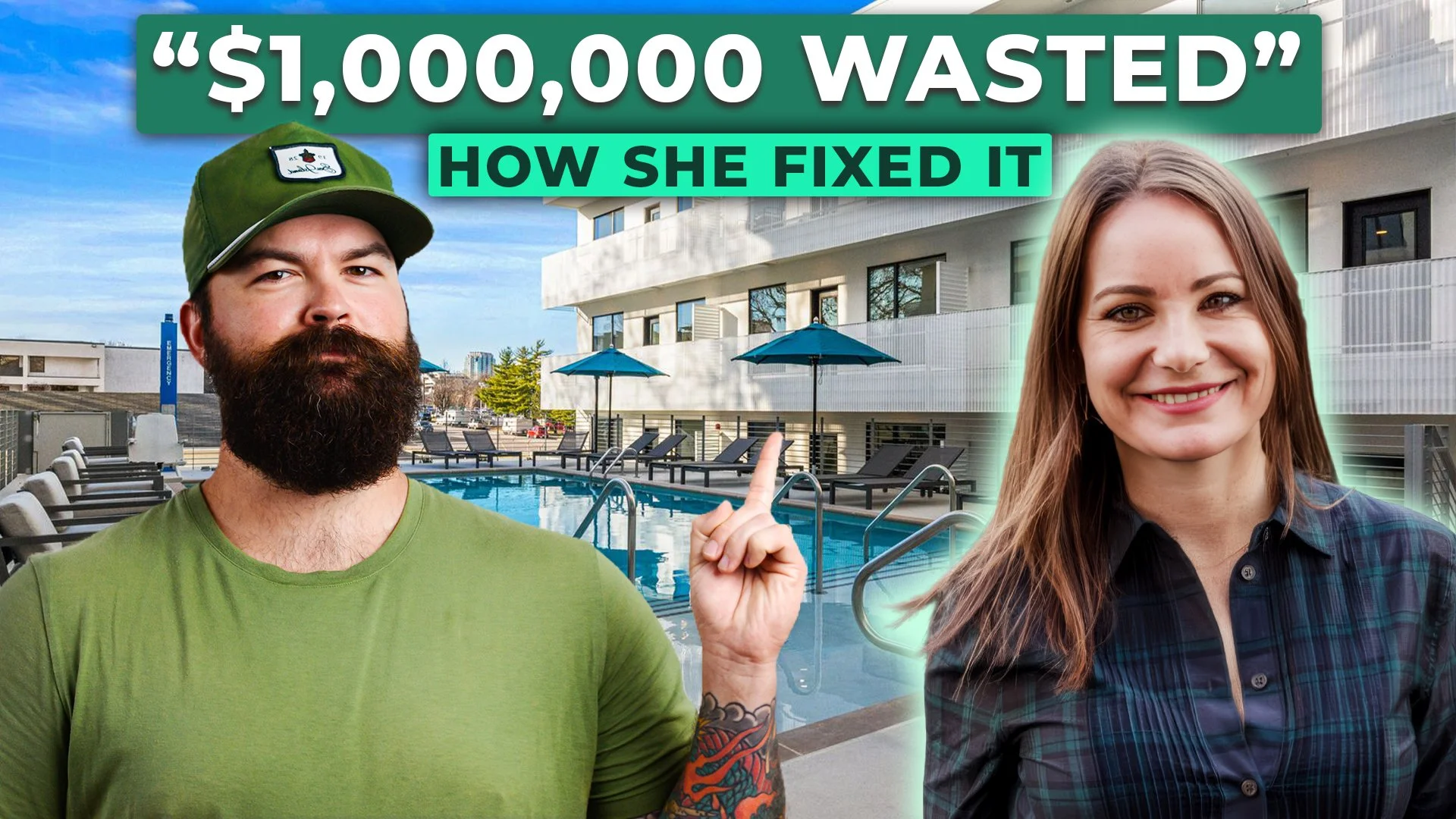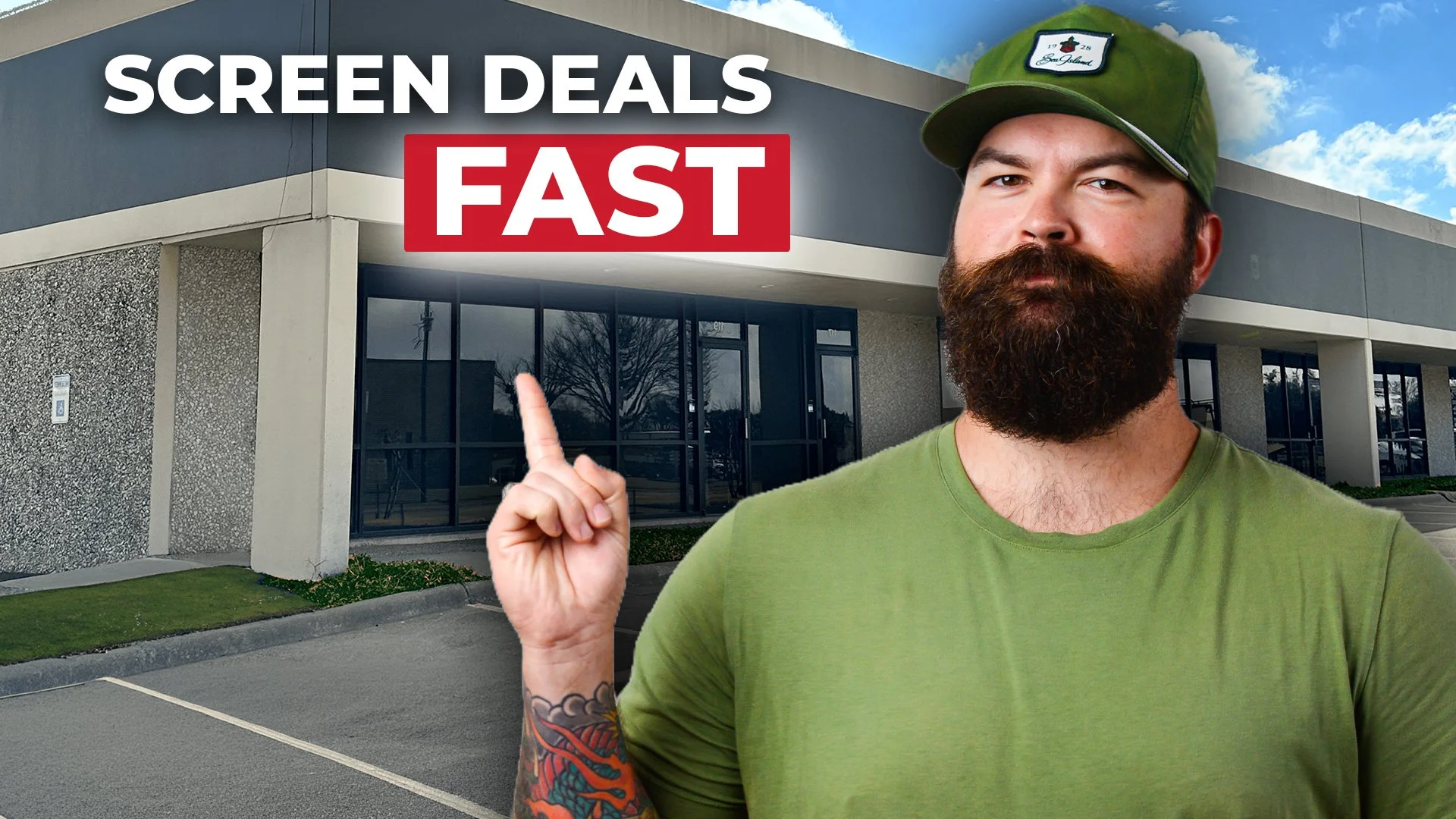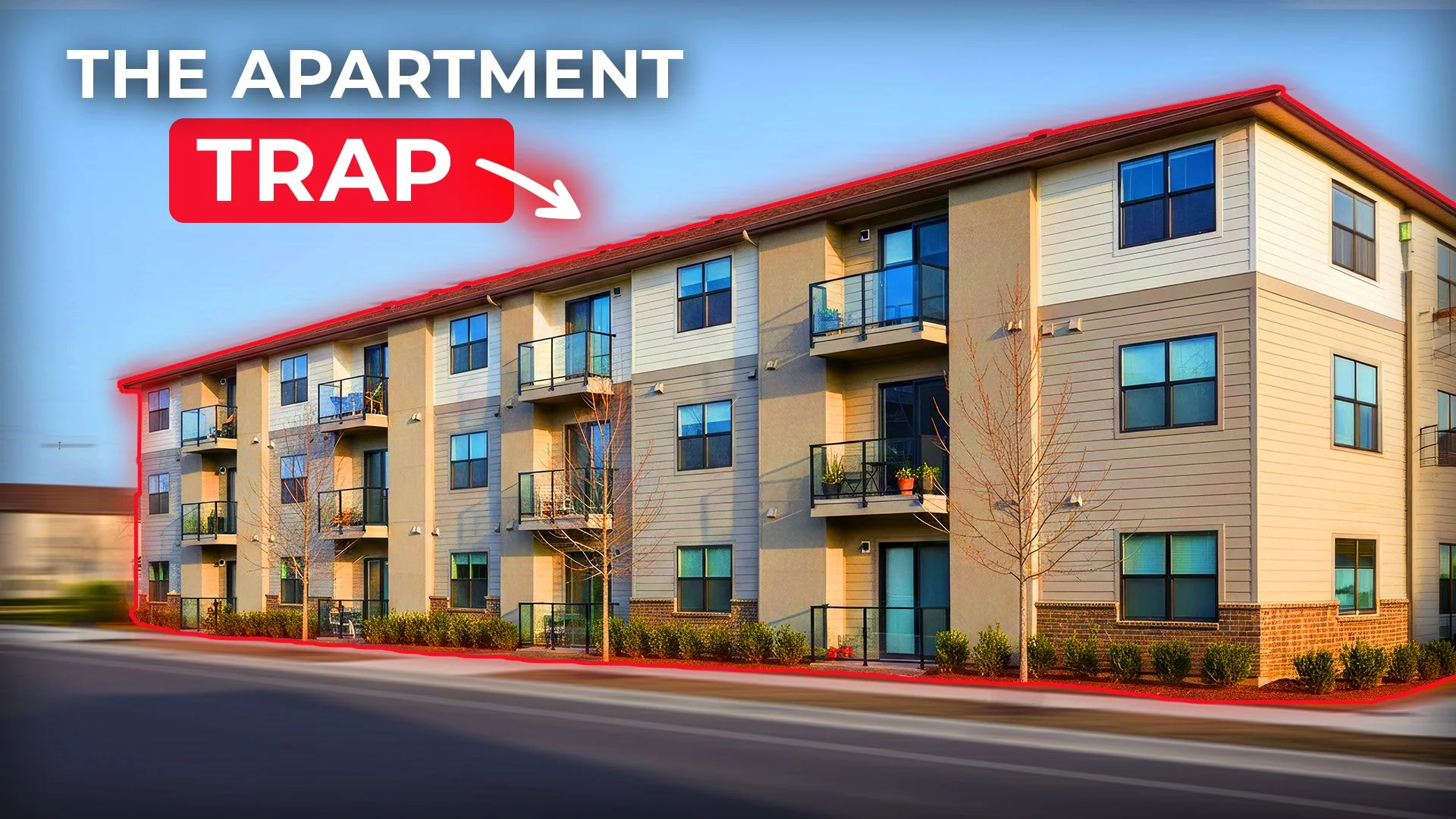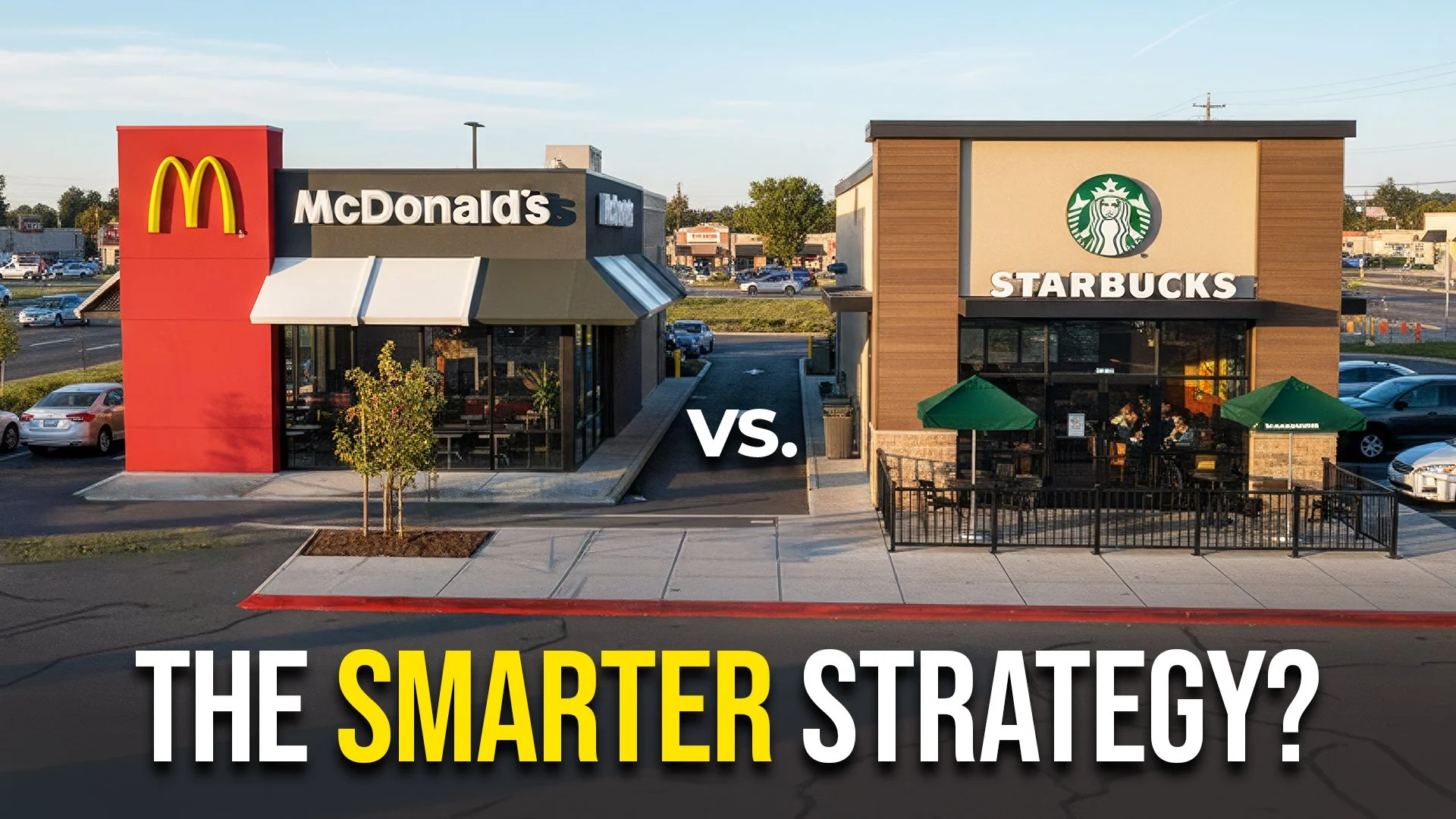What the Rich Buy That You Don't
Everyone knows what the wealthy drive and wear — but few know what they buy to build true wealth: Triple Net (and absolute net) properties.
These “boring” commercial real estate deals quietly deliver predictable, passive cash flow month after month, with tenants like CVS, Dollar General, and 7-Eleven paying not just rent but also taxes, insurance, and maintenance.
No clogged toilets. No late-night calls. Just checks in the mail.
In this video, I’ll break down:
What a Triple Net Lease (NNN) actually is
Why wealthy investors love them for passive income and tax advantages
How the tenants — billion-dollar corporations — handle everything
Where to find these deals (hint: not on Zillow)
How you can start investing in them
Get commercial real estate coaching, courses, and community to jumpstart your investment journey over at CRE Central: www.crecentral.com
Key Takeaways:
Passive Income Strategy: Wealthy investors use triple net leases to generate consistent monthly income from properties leased to national brands like CVS, Dollar General, and 7-Eleven.
Low Maintenance Investment: These properties require minimal management, as tenants cover all expenses including taxes, insurance, and maintenance.
Long-Term Benefits:
Predictable income with 10-20 year leases
Built-in rent increases
Significant tax advantages
Wealth preservation
Investment Characteristics:
Typically cost $1-3 million
6-8% annual cash return
Tenants are stable, large corporations
Often purchased in cash or with favorable bank terms
Investment Options
Direct property purchase
REITs (Real Estate Investment Trusts)
Fractional investing through crowdfunding
1031 exchanges
Key Advantage
These investments are boring but powerful, focusing on steady, long-term wealth building rather than short-term excitement.
About Your Host:
Tyler Cauble, Founder & President of The Cauble Group, is a commercial real estate broker and investor based in East Nashville. He’s the best selling author of Open for Business: The Insider’s Guide to Leasing Commercial Real Estate and has focused his career on serving commercial real estate investors.
Episode Transcript:
Tyler Cauble 0:00
Everyone knows what the rich wear, drive and fly, but here's what they buy that almost nobody talks about. Real estate deals that quietly pay them every single month, deals where the tenants pay the taxes, fix the roof and never call at midnight, and the tenants, they're not college kids or even families. We're talking CVS, dollar, General, 711, here's the secret, the ultra wealthy aren't chasing flash. They're chasing cash flow, passive, predictable, long term income, and they're doing it with deals that look boring from the outside, but generate wealth every single month on autopilot. It's called a triple net lease, or N and N, and here's how it works.
Tyler Cauble 0:53
Let's say you own the building that a Walgreens is sitting on. You're the landlord. Walgreens signs a 15 year lease with you, and they agree to pay you $10,000 every month in rent. But here's the kicker, they also pay for everything else, property taxes, they cover it. Building insurance, they cover it. Roof Leaks, landscaping, trash pickup, all handled by the tenant. Your job is just to collect the rent. That's the magic of a triple net lease. Unlike owning an apartment complex or a short term rental, you don't deal with clogged toilets in late night emergencies or even endless repairs. You get a check every month, and the responsibility stays with the tenant. It's the kind of real estate that doesn't really show up on social media, because it's not that sexy, but it shows up in your bank account, and that's why the wealthy love it. So why do rich people keep buying these boring buildings with national chain tenants? Well, Triple Net Properties. Check every single box that high net worth investors care about. Number one, predictable passive income. These leases are long term, often, 1015, even 20 years or more, the rent is locked in, and usually comes with built in increases every few years. That means the income is not only reliable, it actually grows over time. And these aren't just any tenants. We're talking about some of the most stable companies in the world, CVS, dollar. General 711, businesses that keep operating in good times and bad. Number two, no management headaches. If you've ever owned a rental property, you know the drill, tenants call you when the AC breaks the plumbing backs up. Someone doesn't pay rent with a triple net lease. None of that is your problem. The tenant handles the repairs, the maintenance, the insurance and the taxes. You don't even need a property manager. The rich love this because their time is worth more than dealing with a leaky roof. Number three massive tax advantages, this is real estate. So you get all the standard perks, depreciation to reduce your taxable income and the ability to use a 1031, exchange to defer your capital gains when it's time to sell the asset, it's how investors roll their profits into bigger and better deals without triggering a tax bill. And number four, wealth preservation. Most wealthy investors aren't trying to double their money overnight. They're trying to protect their wealth while generating stable, long term income. Triple Net Properties are often purchased in cash, not for growth, but for certainty. This is the exact kind of asset that sits in a trust pays the family every single month and gets passed down for generations. So while everyone else is chasing trends, the rich are stacking quiet cash from buildings you probably drive past every day. So who are these tenants that the wealthy are renting to? Again, not individuals, not families, not startup businesses. We're talking about multi billion dollar corporations that choose to rent the land under their stores, even though they could afford to buy it. Think about that. Companies like Taco Bell, Starbucks, AutoZone, they lease these properties. They sign long term contracts because they want great locations, not real estate on their books. Why? Because it's more efficient for them. They'd rather use that capital to grow the business, stock the shelves, open new stores, market new products, not tie up millions of dollars owning dirt. So you the investor, become their landlord. They run the business. You run the building. They pay the rent, and they cover all the operating expenses. Let's take a real world example, $1 General Store in a small town signs a 15 year triple net lease. They agreed to pay $120,000 a year in rent, plus all taxes, property insurance and building maintenance. The property might cost one and a half to $2 million to buy, which is somewhere between a 6% and 8% annual cash on. Cash return, completely passive, no management, no surprises, just checks in the mail. And because these tenants are national brands with proven business models, banks are often willing to lend on these properties with very favorable terms, even for individual investors. So yes, the tenant is Dollar General, but your customer, it's really their balance sheet. That's why these properties are prized by the wealthy. You're not betting on some tenant's ability to pay rent. You're essentially buying into a corporation's credit rating. And as long as they're in business, you're in business. Now, here's the part that nobody tells you, these deals aren't hiding but they're also not so obvious. Triple Net Properties aren't listed on Zillow. They're not gonna pop up on your Instagram feed, and you're probably not gonna hear about them from your residential real estate agent. So how do the wealthy find them? They work with specialized commercial real estate brokers. Shameless plug for my team here at the cobble group, which works with these buyers nationwide. These brokers deal in nothing but Triple Net Properties, single tenant buildings with national brands on long term leases the listings they're often found on platforms, online or even off market and shared directly with these high net worth clients and family offices. A lot of these properties trade quietly, behind closed doors to investors with capital ready to move and speaking of capital, yes, the buy in is higher. It is commercial real estate, and most triple net deals start at a million dollars and up. But here's the good news, you don't have to be a millionaire to get in on these types of deals. There are REITs, Real Estate Investment Trusts that specialize in triple net portfolios. You can buy shares of these companies, just like stock, which own 1000s of Triple Net Properties and pay you a monthly dividend, or you could invest fractionally through crowdfunding platforms which occasionally offer triple net deals to accredited investors. There are also 1031, exchange facilitators who work with investors looking to roll profits from one property into a triple net asset, often to de risk and simplify their portfolio. In short, the rich find these deals because they are looking for them. They know where to go, and they have the relationships. And most importantly, they're not chasing the hype. They're building wealth on boring, steady returns one corporate lease at a time. So if Triple Net Properties are so powerful, why haven't you heard of them? Simple, they're not marketed to you. You're not supposed to find them on Tiktok, and they're not trending on Reddit, and they're definitely not being pitched by influencers flashing spreadsheets and Lamborghinis. These deals live in a totally different world, a world where wealth moves quietly and without the hype. Think about it. No one's making viral content about owning a boring CVS in Iowa that pays $9,000 a month. But for wealthy investors, that's the dream. And here's the truth, there are barriers to entry, and they're intentional. First, the price tag, most triple dot properties cost between one to $3 million dollars or more that immediately filters out probably 99% of investors. Second, the complexity. These aren't cookie cutter residential leases. You're dealing with corporate level contracts, due diligence on tenant credit, zoning regulations, leaseback terms. If you don't know what to look for, it's very easy to overpay or miss a red flag. Third, it's not exciting. There are no thrills of flipping, no weekend renovations, no viral before and after moment. It's slow, it's stable, and it's exactly the kind of wealth play that gets passed down, not posted online. And finally, access unless you know the brokers understand the space and have the capital or know how to leverage capital, these deals stay out of reach, and that's what makes them valuable, because while everyone else is chasing the next short term trend, the rich are locking in long term income with blue chip tenants on autopilot. Now this isn't financial advice, but it is exactly how the wealthy structure their portfolios for passive income tax advantages and long term security. It's not flashy, it's not loud, just consistent, boring, powerful cash flow. And here's the truth. You want to start building a commercial real estate portfolio like this, whether it's your first deal or you're ready to scale, I can help you. I work directly with investors as a consultant to help them understand source and evaluate triple net opportunities. And if you're serious about leveling up fast, I run a High Level Mastermind called the CRE accelerator, where we break down real deals, connect with brokers and build portfolios the right way. This is your invite if you're ready to stop chasing the hype and start building real wealth. Check the links below. Let's talk now. Check out this video next, where I give you the guide to investing in Triple Net Properties. You.











